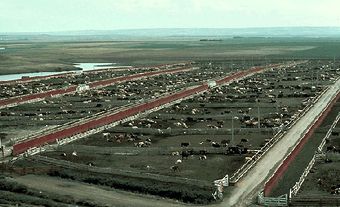High Technology
Technology, along with labour, capital, resources and management, is one of the essential components of industrial production. Most classes of industry require some technological input, but the amount varies widely among industrial sectors. Some sectors, eg, aerospace, computers, telecommunications and pharmaceuticals, are particularly dependent upon advanced technology (ie, technology that rests on advanced scientific and engineering knowledge) and are referred to as "high-technology" industries.
Concentration of High-Technology Industry
Success in high technology depends upon the interaction of highly skilled engineers, scientists, technologists and business managers, operating in an environment which is receptive to new products, processes and services. Thus, high-technology industries flourish in countries with advanced economies, well-developed educational systems and sophisticated markets. High-technology industries form an important component in the economies of most major Western industrial countries, particularly the US, Germany, Japan, France and Great Britain. Within these countries, the managerial and design headquarters of high-technology firms tend to concentrate in particular regions, usually regions served by strong universities with scientific and technological orientation.
Importance of High-Technology Industry
There has been a long-standing debate on the importance of high-technology industry to Canada's economic development. One view is that Canada, as an advanced industrial country with a highly educated work force, should seek to become a major player in international markets for high-technology products. Proponents of this view believe that high technology offers the best growth potential, that it corresponds most closely with the aspirations of individual Canadians and that it is essential if this country is to keep open the widest choice of economic and political options. The opposing view is that the most appropriate economic strategy for Canada, a country rich in natural resources and with comparative advantages in resource-based industries, would be to build on those comparative advantages. The latter view coincides with the interest of foreign investors who seek reliable supplies of raw materials and semiprocessed goods from politically stable resources.
Canadian Policy
In practice, Canadian policy has been to encourage simultaneously both high-technology and resource-based industries. Hence, Canada has demonstrated less national commitment to high technology than most of its industrial trading partners have. The federal government has shown the greatest interest in high-technology industries; provincial governments have held policies generally more favourable to resource development. The aggregate impact of these mixed policies, combined with a high degree of foreign investment and the natural economic forces stemming from Canada's rich resource base, has produced an industrial structure that is oriented towards resources far more than towards high technology.
Since the end of WWII Canada has consistently been in a growing net deficit position in its trade in high-technology products, while it has enjoyed a favourable trade position in natural resources and resource-based industries. Many Canadians see this as increasingly poor performance and a major national concern, not only because of its immediate impact on economic growth and employment but also because of the constraints that it may place on Canada's future economic, social and political development.
Despite the disappointing overall performance of Canadian high-technology industries, certain individual firms, such as Nortel, have been highly successful. Despite the downturn in the high tech industry since 2001, successful high tech firms demonstrate that Canada could be a fertile ground for high-technology industry.
See also Robotics; Science Policy; Scientific Research and Development; Science and Society.

 Share on Facebook
Share on Facebook Share on X
Share on X Share by Email
Share by Email Share on Google Classroom
Share on Google Classroom

